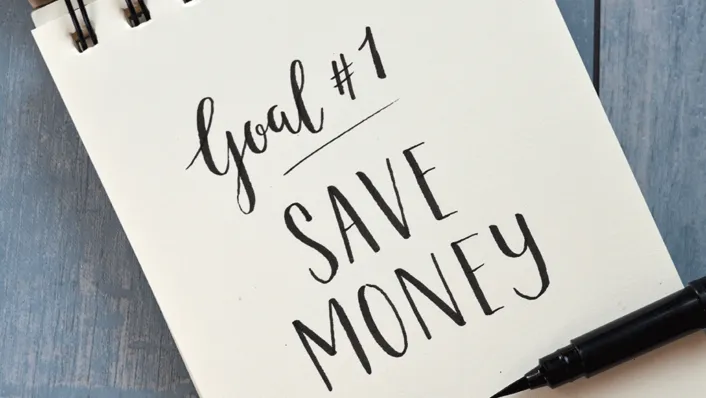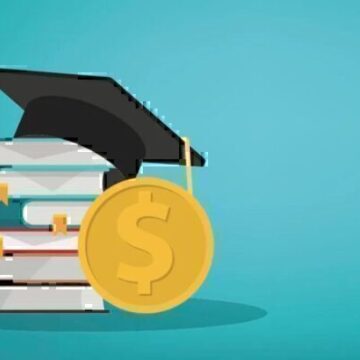Review and adjust your financial plans to reflect any major life changes from the past year.
Maximize your retirement contributions and tackle high-interest debt to improve your financial health.
GreenPath offers free financial counselingfree financial counseling: set new goals and create an emergency fund to ensure a secure and prosperous new year.
There is something truly cathartic about being able to check something off your to-do list—especially when the outcome is you feeling more financially poised and empowered. Here are actionable steps you can take to end this year strong.
1.Take Inventory
This is the perfect time to look at your major life milestones of the past year (or changes on the horizon) to ascertain how they intersect with your finances. Have you purchased a new car or home? Is someone in your household beginning higher education or staring down the barrel of loan repayment? Have you merged finances through marriage or cohabitation? Examine your income, monthly payments, and create a budgetcreate a budget that reflects any factors that could affect your tax withholdings and overall financial picture.
2. Maximize Retirement Accounts
Does your current employer match your 401(k) plan contributions? Take advantage and contribute what you can. The deadline to contribute to 401(k) is usually December 31st, and if you have an IRA account, you can make contributions right up until Tax Day. Doing this will help you reach those retirement savings goals and trim down your tax bill for the current year.
3. Tackle Debt
We get it. The last thing you probably want right now is a reminder of your holiday extravagance. This is the time to enjoy the afterglow of presents and feasting. When you have the emotional fortitude, pay off credit card debtpay off credit card debt or, at minimum, chip away at credit cards that carry the highest interest rates. If you have solid credit, you may be able to pay off debt faster by transferring your credit card debt to a zero or low-interest card (just a heads up that this often comes with a fee).
4. Review Your Credit Report
The end of the year is a good time to evaluate your credit report. Beyond the aim of improving your score, monitoring your credit regularly alerts you to any errors or fraudulent transactions. Experian, Equifax, and TransUnion all offer one free credit report per year, but you can expect to pay about $5 to access your score.
5. Enroll in a Health Insurance Plan
Choose your plans by the enrollment deadline to ensure that your coverage will begin on January 1st. The open enrollment period for 2024 runs from November 1, 2024, to January 15, 2025. Enrolling by December 15 ensures your coverage starts on January 1, while enrolling after December 15 but before the January deadline will result in coverage starting on February 1. Going a few weeks without any coverage isn’t a worthwhile risk to take.
6. Take Advantage of your FSAs
Speaking of health benefits, make sure you check the end-of-year deadline if you have a Flexible Spending Account (FSA) through your current employer. If you don’t take advantage of unused benefits, you’ll lose them when the new calendar year rolls around. Schedule your yearly physical, get a cancer screening, or make that appointment to get your teeth cleaned that you’ve been putting off all year (we don’t judge you).
7. Square Away Estate Planning
When life happens (marriage, divorce, birth, death, or shifts in family dynamics), we’re often not fully prepared for the impact this can have. And while none of us have a crystal ball forecasting the future, you can still make plans to ensure your family and loved ones are accounted for. Evaluate your designated beneficiaries and trustees, make any necessary changes, and draft a will if you haven’t done so already.
8. Create an Emergency Fund
Only 44% of Americans have emergency savings to cover three months of expenses. This percentage could decrease now that we’re seeing record-breaking inflation at the gas pump and grocery store. While your cash reserves might be a bit lean after the holiday season, consider setting up a direct deposit that funnels even a small percentage of your paycheck into a dedicated savings account.
9. Set New Financial Goals
Is there a family vacation you wanted to take but couldn’t budget for? Are there categories you’re overspending in and need to cut back on? Any big purchases you’re planning to make for yourself or others in your household? You might be ruminating on New Year’s resolutions already, so consider adding some financial goalposts to round out your list.
10. Get Connected
We understand that while to-do lists are a solid start, sometimes having a second pair of eyes and ears is important, too. And that’s where we come in.
GreenPath is a trusted national nonprofit organization with more than 60 years of experience in helping peoplehelping people save money, pay down debt, and build financial resiliency. Our empathetic NFCC-certified counselors can help you evaluate your year-end goals and create a customized plan for you based on your specific circumstances and needs.
You Might Also Be Interested In…
Budget Friendly Strategies for Charitable ContributionsBudget Friendly Strategies for Charitable Contributions
GreenPath Financial Service
Debt Management Program
GreenPath is a 60-year trusted national nonprofit, learn how GreenPath’s Debt Management Program can help you pay off your debt in 3-5 years, while helping you develop sound financial literacy.










